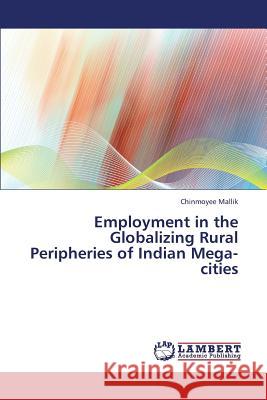Employment in the Globalizing Rural Peripheries of Indian Mega-Cities » książka
Employment in the Globalizing Rural Peripheries of Indian Mega-Cities
ISBN-13: 9783659372391 / Angielski / Miękka / 2013 / 168 str.
The forces of globalization have intensified the processes of rural-urban interaction along the city fringes by providing impetus to industrial de-concentration towards the peripheral lands in the developing countries. This work attempts to understand the implications of globalized environment for the rural livelihoods and tries to decipher the extent to which the rural workers residing in the vicinity of the six largest metropolitan cities in India are equipped to negotiate with the shrinking natural resource and the resultant changes in the structure of available work. Based on census data, it has emerged that rural workers in general and the rural women in particular have been marginalized from productive work in the fringe districts of the mega-cities relative to the respective rural interiors, more so following the reforms. Such a trend has been corroborated by an exploratory field study in a village in the fringe of Delhi. Thus, it may be argued that the changes injected by the economic reforms have proved to be much more critical in case of the rural population in the urban fringe areas of the largest cities relative to the rural interior.











